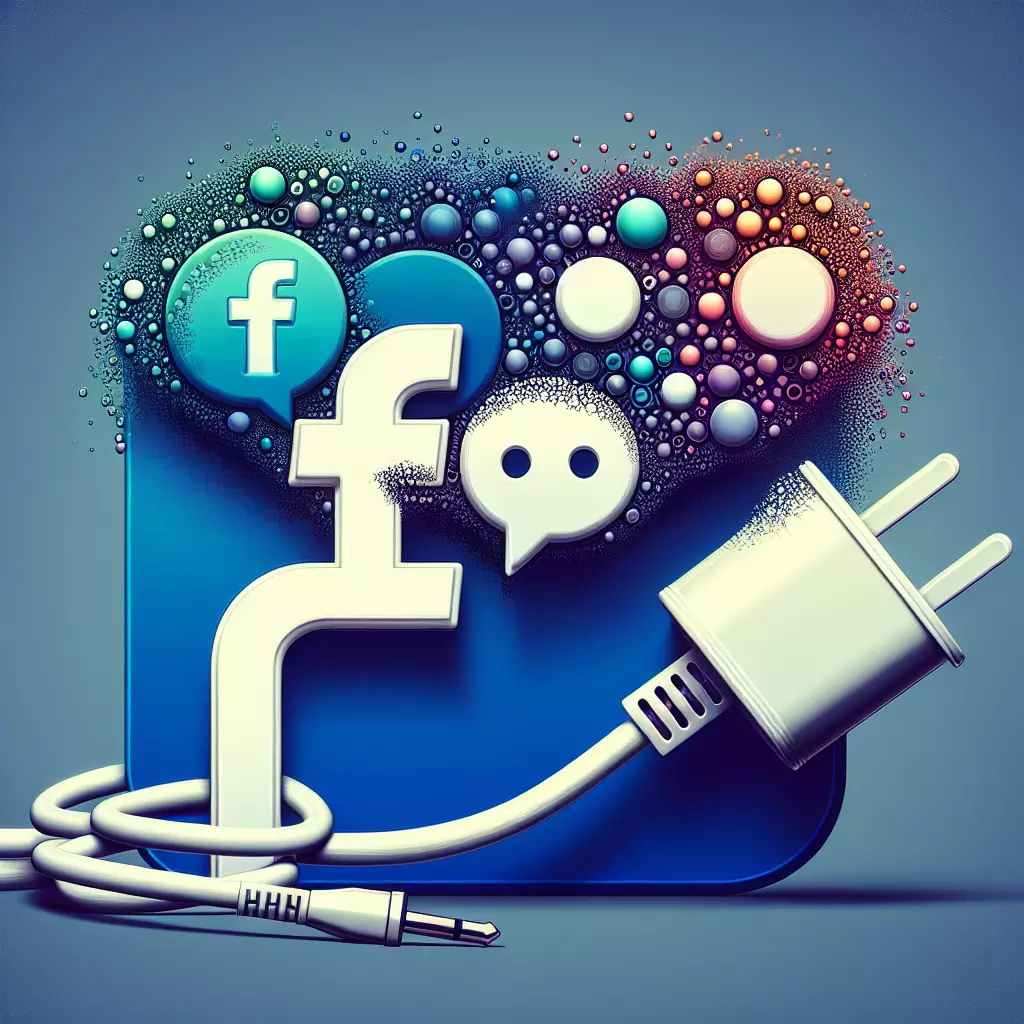Facebook Chat Plugin is Shutting Down! What Should Businesses Do

Creation at: 2024-05-08 | Last modified at: 2025-03-26 | 4 min read
Facebook Chat Plugin is Shutting Down! What Should Businesses Do?
Facebook is Disabling Its Chat Plugin—What’s Next for Businesses?
Facebook recently announced that its official chat plugin will be discontinued starting May 9, 2024. For businesses that rely on real-time messaging to serve customers, this is a major shift.
This isn’t just about losing a chat tool—it’s about losing a direct communication channel with potential customers, especially those who don’t have a Facebook account. Previously, the plugin’s “Guest Mode” allowed non-Facebook users to chat anonymously with businesses, but once it’s gone, those potential customers might disappear too.
So, how should businesses respond? What alternative solutions can fill the gap? Let’s break it down.
How Will Businesses Be Affected?
The shutdown of Facebook’s chat plugin isn’t just a minor inconvenience—it affects customer service, marketing strategies, and even sales conversions in several ways.
1. Communication Channels Will Be Disrupted
Many businesses rely on the Facebook chat plugin to instantly respond to customer inquiries, manage orders, and handle post-purchase support. With this option gone, they’ll need to find new ways to engage customers—either through their Facebook page’s Messenger or by integrating new live chat tools.
2. Loss of Potential Customers
The Guest Mode feature allowed people without Facebook accounts to contact businesses easily. Without it, businesses may struggle to engage customers who don’t want to log in or don’t use Facebook at all.
3. Lower Conversion Rates
Instant chat is often a key driver for sales conversions. Consider these scenarios:
- A customer has a quick question about a product before purchasing—they send a message through the chat.
- A business rep provides an instant answer, resolving concerns and securing the sale.
Without this seamless interaction, some customers might hesitate and abandon their purchase.
4. Marketing & Customer Service Strategies Need Adjustment
If your business has relied on the chat plugin to collect leads or as part of your ad funnel, you’ll need to rethink your approach. Some possible solutions include:
- Implementing a new live chat system
- Strengthening alternative communication channels (e.g., WhatsApp, Line, or email)
- Updating call-to-action (CTA) messages to guide customers toward alternative contact methods
How Will Customers Be Affected?
This isn’t just a challenge for businesses—customers will also feel the impact of this change.
1. Less Convenient Communication
Customers who are used to chatting directly on a website may find it less convenient to switch to a different platform.
2. Adapting to New Contact Methods
Some businesses will move to Messenger, while others may use email or other chat services. Customers will have to adjust to these changes, which could impact their overall experience.
3. Privacy Concerns
Some users may not want to use Facebook Messenger or other platforms that require them to create an account, which could make them hesitant to reach out.
What Are the Best Alternatives for Businesses?
Since Facebook’s chat plugin is going away, businesses must find new ways to maintain real-time communication with their customers. Here are a few practical alternatives.
1. Use Facebook Messenger for Direct Engagement
Even though the chat plugin is shutting down, Facebook Messenger is still available. Businesses can:
- Add a Messenger link to their website, allowing customers to start a conversation with one click.
- Use Messenger API to create chatbots for automated responses.
- Run Facebook ads that open Messenger chats for direct customer interaction.
👉 How to do it?
Follow Facebook’s official guide to add your Page ID to a widget or button, making it easy for visitors to initiate a conversation.
2. Adopt a Dedicated Live Chat Tool (Highly Recommended!)
If real-time customer interaction is a priority, consider replacing Facebook’s chat plugin with a specialized tool. Here are some great options:
✅ DMflow.chat – A business-friendly live chat tool that integrates Messenger while offering more flexibility.
✅ LiveChat – Provides a website chat function with automation and CRM integration.
✅ Zendesk Chat – Best for large businesses, as it integrates with ticketing systems.
✅ Tawk.to – A free chat tool that’s great for small businesses.
These tools not only maintain real-time customer interactions but often provide additional features like chat history, analytics, and AI-powered bots to enhance support efficiency.
3. Diversify Your Customer Service Channels
The shutdown of Facebook’s plugin highlights an important lesson: businesses should never rely too heavily on a single platform.
Consider offering multiple contact options, such as:
📩 Email support – Best for handling detailed inquiries and support tickets.
📱 WhatsApp / Line Official Accounts – Popular messaging apps that provide a direct communication channel.
💬 On-site chat systems – Tools like DMflow.chat or LiveChat let customers message you directly from your website.
By diversifying communication channels, businesses can reduce dependency on Facebook and ensure seamless customer support.
Conclusion: Now Is the Time to Upgrade Your Customer Support Strategy!
While the discontinuation of Facebook’s chat plugin may be an inconvenience, it’s also a wake-up call for businesses to upgrade their communication strategy.
💡 Key Takeaways:
✅ Test Messenger links now to ensure customers can still reach you.
✅ Evaluate and integrate a new live chat tool like DMflow.chat or LiveChat.
✅ Expand communication options to include WhatsApp, email, and other alternatives.
Don’t wait until May 9—start preparing now to keep your customer experience smooth and hassle-free! 🚀


